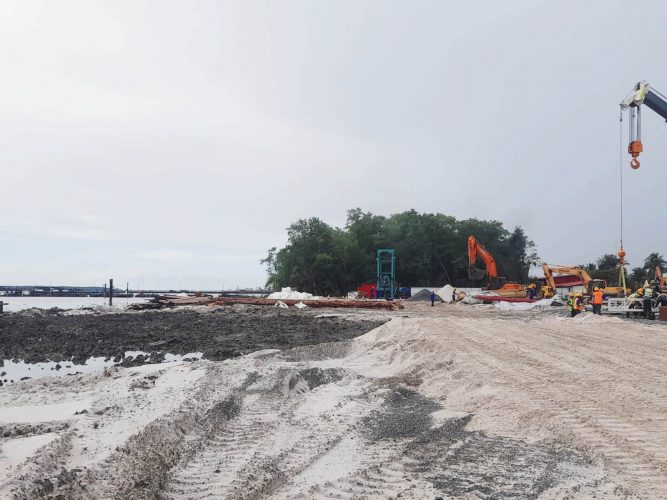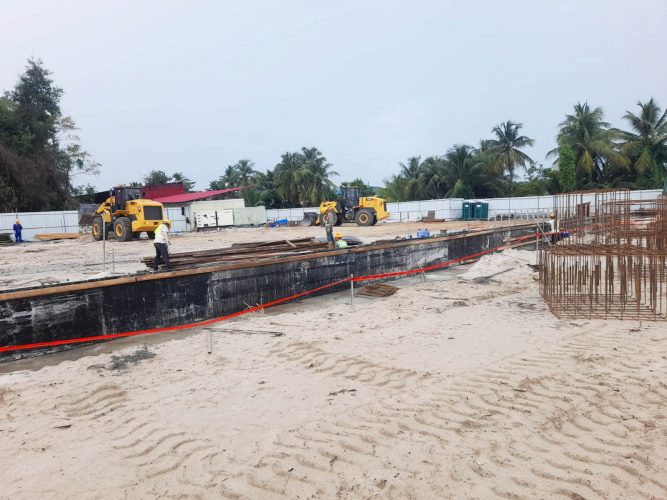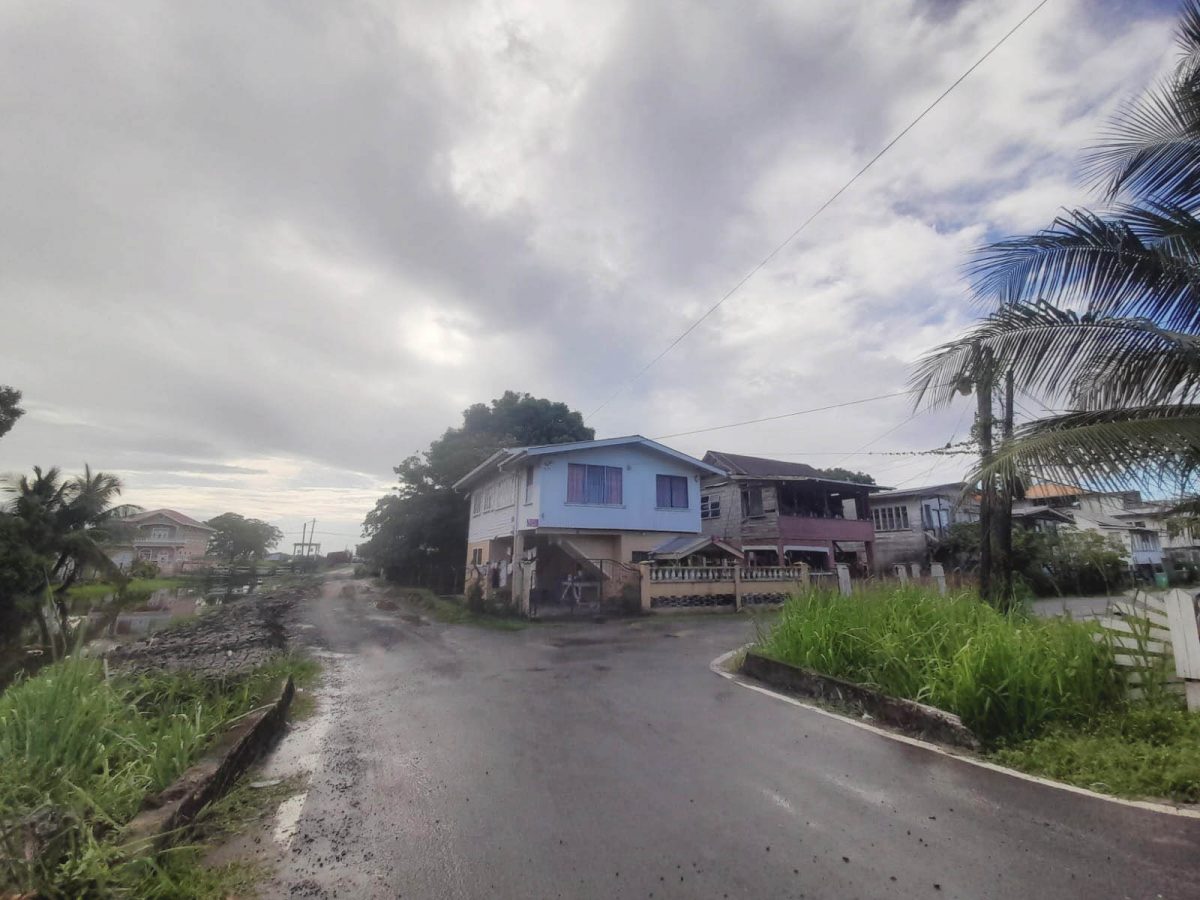Residents in the pathway of the new Demerara Harbour Bridge (DHB), on the northern side of the construction zone, are complaining about the manner in which land acquisition matters are being handled by the government.
A $52 billion (US$260 million) contract was signed back in May 2022 by China Railway and Construction Corporation Limited and the Government of Guyana for the construction of the new Demerara Harbour Bridge, which is set to replace the current floating bridge.
Some 20 structures in the Peter’s Hall area are in the path of the bridge and as such, they will have to be relocated. This aspect is being handled by the Ministry of Housing and Water, and just early this year Minister Collin Croal met with residents of Peter’s Hall to begin the process.


The government had indicated that all residents in the pathway of this massive infrastructural development had agreed to relocate without any resistance.
Stabroek News visited and spoke with the owners of the affected properties and the consensus of most residents was that movement would not be the issue, but the process and valuation of land remain a concern.
Diana Forde, who lived in the Peter’s Hall area for many years, said that her brother was left to take care of the property. He has been visiting primarily to monitor where they would be located, and so far it has been somewhat of a waste of time.
“Two times he went and… all he see is sand filling the land and they are not saying anything more. Nobody not calling and saying anything. He had a meeting. I don’t see meetings going on anymore and everything is just left at standstill and we are seeing big operations going on. The whole day, and whole night you can’t sleep because of heavy-duty vehicles moving,” Forde said.
“Put back a house for us. You wanted here; give us back the length of the land and width and give us back a house in a proper area with infrastructure and everything. You come and meet us here with infrastructure, and give us back the same way.”
Forde said they have suspended repairs to the house because of what has been transpiring and now that they are hearing that the bridge will be completed by next year, there is that thought of what the government will be doing with them. Her family has lived in the area for over 100 years.
Another homeowner, Vashti Fredericks, feels that residents in her community are being treated unfairly.
“Nobody never comes in here; they are treating the residents very unfairly. Nobody ever come and said listen because of the construction of the bridge going on, what is going to happen, what are the effects of it happening. Nobody ever comes. Night and day you can’t sleep because things are falling off your walls because it’s a lot of heavy-duty vehicles passing in here – 40-foot containers,” she said.
Initially, she said, they were told that they had to move and after that they heard nothing.
Subsequently, some homeowners retained lawyers and approached the Housing Ministry and it was only then that the ministry reached out and sent a team of evaluators. These included housing ministry staff, Lands and Survey staff, and some from the National Agricultural Research and Extension Institute. Later an offer was made, which she rejected. This was so because her family thought that with the years they have been living there, coupled with the fact that it is prime land, the property would be valued more than what the government was offering them.
The woman said that the current infrastructure was being destroyed and they were being told to move out without any concrete agreement.
Another resident, who preferred to remain anonymous, echoed the sentiments of the others, saying that there was no problem of moving but it must be done in a proper manner.
“I lived here for roughly 60 years, and I don’t feel good that we have to move, but it is for the development of the country… They say we got to move and they will give us a place, well we are waiting on that. We had several meetings, but they just tell us that we have to move, they come to price the house and trees them in the yard, that’s it,” the resident said, adding that it was unclear what the authorities wanted to do with them at the moment.
The new bridge will provide better connectivity to the East Bank Demerara, the Diamond-to-Ogle bypass on the eastern side of the river, as well as the West Bank Demerara including the Parika-to-Schoonord road on the western side of the river.




